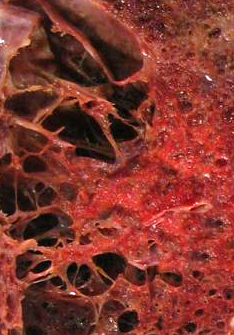Black lung response questioned
 Experts have claimed that Australian medical professionals need to be better trained to read X-rays.
Experts have claimed that Australian medical professionals need to be better trained to read X-rays.
A recent review of coal workers' pneumoconiosis (CWP or “black lung”) said failures and complacency mean the disease is now making a return, decades after it was thought to have been eradicated.
Eleven new cases of black lung have been diagnosed in Queensland, and there are dozens more cases under review.
Coal workers’ pneumoconiosis is caused by exposure to coal dust, often in the coal industry or in the manufacturing of graphite or man-made carbon products.
The risk of getting black lung increases with the amount of time spent around coal dust, and there is no known cure.
The Queensland Government says it will impose stricter dust limit regulations, send workers’ X-rays overseas to be re-checked, and provide more training for local radiographers.
Royal Australian and New Zealand College of Radiologists president Dr Greg Slater says that is not necessary.
“We believe that the expertise available in this country is sufficient to guarantee highest quality reporting and we don't agree with the proposal,” he said.
“A common problem is that X-rays weren't nominated as being for coal workers and looking for coal dust disease.
“This is a big problem because the same very fine dots that occur on these X-rays can be due to other reasons as well.
“They can be due to emphysema, chicken pox in the past, prior exposure to tuberculosis or they can be nothing. They could be prominent vessels seen end-on.
“The number of cases that were wrongly missed out of the 11 confirmed cases might be zero, might be one, might be two. It's a very small number and we're still to see further evidence and proof.”
Maurice Blackburn lawyers' dust disease litigation specialist Jonathan Walsh has told ABC reporters that mining companies need more accountability.
“Where it falls down usually, is where the enforcement regime to punish or penalise those mine operators or those employers who don't ensure that their workplaces are safe,” he said.
“That's where the legislation needs to be amended to ensure that occurs and occurs on a regular basis.”







 Print
Print